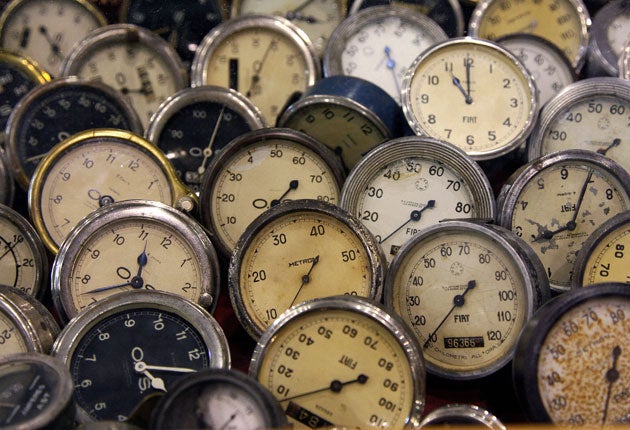Consumer rights: How can I tell if my car's mileage was turned back before I bought it?
A motor that may have been 'clocked'...and difficulty in finding the ID that banks need to open an account

Q. I bought a second-hand car recently from a dealer and paid cash. It looked in good condition and seemed OK when I took it for a test drive. It's eight years old and I was told it has had just three owners and the third was the uncle of the second, so it's been in the same family for half of that time. I was happy to pay the asking price because the mileage is low.
All seemed fine for the first week but I'm starting to think the car has done a lot more miles than it says on the clock. There are things going wrong that shouldn't go wrong on a car with such a low mileage. I think the mileage counter may have been turned back prior to the sale. How can I find out if this is the case, and what do I do if I'm right?
SS, London
A. Apparently "clocking", as it's called, is still prevalent and even the digital odometers that were supposed to cut down this kind of crime can be turned back. Mileage "correction" is advertised online and is costing UK drivers an estimated £580m a year ... so you're not alone! You can find someone to clock your car for a small fee and then you sell it at a higher price because the lower mileage makes it more attractive.
Try investigating the car's history. The Vehicle and Operator Services Agency (Vosa) makes an electronic record of every MOT test, and the vehicle's mileage will be recorded as part of the MOT. If you can check the MOT history you should find the answer. There's information at www.direct.gov.uk.
It's hard to prosecute the clockers because they aren't the ones who are selling the cars for inflated prices. It's not turning the clock back that's an offence but selling it without telling the buyer that the mileage isn't accurate. The best advice is to check out the mileage yourself and if you find anything suspicious present your findings to the local trading standards office at your local authority, they are people the power to investigate and prosecute.
If you find that you have been the victim of clocking then you may have recourse to compensation through the courts. You may find, though, that the garage itself has been duped by an earlier owner who had the car clocked. However, that is unlikely as dealers have experience and can spot the signs of a car that has a much higher mileage than is claimed.
Still, there is a lesson in your case for every reader, and there are ways to avoid falling victim to clocking. Many dealers will let you talk to previous owners, which is a good way of verifying the mileage. Check seats, seat belts and carpets if they are worn, this is often a sign that the car has done a lot of miles. One other tip is to check the log book; if the previous owner was a business then it is very that the vehicle would have covered a low mileage.
Q. I am having problems opening a bank account because of ID rules. I have been asked for my passport, which I can provide, but also two utility bills with my address on them. I don't have any bills as I live with friends and the bills are in their names. The only bill I am responsible for is for my mobile phone, but that is online and the bank won't accept a printout of an e-bill. I offered my driving licence, which has my address on, but the bank refused to accept that. Can they insist on seeing these documents? Can you give me any advice?
AT, Essex
A. By law all banks and building societies, and any other financial service provider, have to check the identity of anyone who wants to open an account or buy any financial products from them. The aim is to stop money-laundering by criminals who open accounts in false names with someone else's address. To comply with the law the banks have to see documents that prove you are who you say you are and live at the address you've given.
They want to see documents that are issued by an official authority, can't be easily forged and include a photograph. They usually ask for are a current passport (or national ID card if you are from an EU country), a current photo-card driving licence, a pension book or benefit book, or a council tax or electricity bill. Each bank or building society has its own arrangements but usually they want two documents.
Many people can't provide the exact documents the banks ask for. If you'd never been abroad you probably wouldn't have a passport and not everyone learns to drive or pays council tax. The British Bankers' Association says that in these cases banks and building societies have procedures that allow them to accept other types of proof such as a tenancy agreement or a letter from an employer.
You can download a useful leaflet from the BBA website at www.bba.org.uk/publications. Take the leaflet and talk to someone at the bank. If you can't resolve the problem with one try another, which may have different rules. But, by law, you must provide satisfactory proof of your identity. If you can't, the bank or building society can't open an account for you.
www.moneyagonyaunt.com
Subscribe to Independent Premium to bookmark this article
Want to bookmark your favourite articles and stories to read or reference later? Start your Independent Premium subscription today.

Join our commenting forum
Join thought-provoking conversations, follow other Independent readers and see their replies